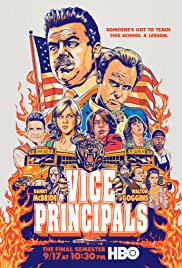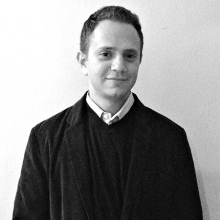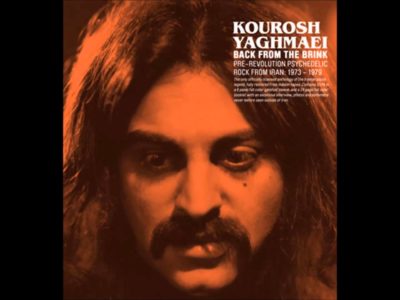Soundtrack Stars: Nailing the Music for “Vice Principals” on HBO
If you’re in the mood for a Learning Experience, then watch HBO’s caustic comedy “Vice Principals,” for a constant refresher on what to do and what not to do.
Starting on the “not” side: don’t let your live devolve into a negative cycle of ambition, real and perceived slights, excessive revenge, blind rage and overall insanity. That’s the weekly pattern of Neal Gamby (played by Danny McBride), a scheming South Carolina vice principal who is passed up for promotion and sets out with his equally twisted partner — fellow vice principal Lee Russell (played by Walton Goggins) — to do something about it. And we mean really DO something about it, in ways that are one part evil genius, two parts badly bumbling, and all parts extremely funny.
Back to the “to do” angle: make a TV soundtrack this excellent. That’s the responsibility of music supervisors Gabe Hilfer of Full Pursuit, plus his partner DeVoe Yates, alongside composer Joseph Stevens. Fueled by the vision of “Vice Principals” co-producers McBride and Jody Hill, the show bristles with an extra-strength sonic identity.
Built around an arresting nucleus of military-grade drumline performances, the Season One soundtrack also captured ears with a creative musical mix that can veer from raw blues to classic tracks from Donovan, ethereal ambience and Iranian psychedelic rock. All those synchronization licensing gems get connectected by Stevens’ 1980’s-era inspired original music (Harold Faltermeyer would be proud) and you’ve got a series that seems like a music supervisor’s dream.
Hilfer’s film and TV credits go deep, including Suicide Squad, Sausage Party, Central Intelligence, The Night Before, Creed, “Red Oaks” “Black-ish” and “Superstore.” Combine that with Yates, whose long resume similarly Suicide Squad, Sausage Party and “Red Oaks,” as well as Black Swan, “The Mindy Project,” “In Treatment,” and “Entourage” and you’ve got a synch licensing supergroup.
With the recent launch of “Vice Principals” second and final Season 2 and an equally engaging playlist so far, that chemistry is in evidence once again. Among Hilfer’s and Yates’ many collaborations was the 2009-2013 HBO series “Eastbound and Down”, where the pair first got the feel for working with McBride and Hill’s (along with partner David Gordon Green) Rough House Pictures.
“Devoe had been the steadying musical force on all seasons of ‘Eastbound & Down,’” Hilfer recalls. “And then, on Season 4 I came in and joined him as somebody who had worked with HBO before and just helped facilitate, and make sure that he had all the support he needed.
“From there, we developed a great long-standing, lifelong friendship, and through a lot of those relationships and a lot of those same individuals who worked on that show and others, some new opportunities arose. I don’t want to speak for Devoe, but I’ve had some team-up music supervision situations in the past that haven’t been super-fun, but when they are you say, ‘Let’s do more of them.’”
“I think ours is a good collaboration,” adds Yates. “It’s cool when you find somebody you can work with and you can make the music better together. We’re like a band — Ike and Tina Turner, maybe?”
The opportunity to team up again on “Vice Principals” was a natural after the smooth collaboration between Hilfer, Yates and Rough House on “Eastbound & Down. “We just decided to get the band back together,” says Hilfer. “The pitch from Rough House was, ‘We have a new project. Do you want to do it?’ The answer was unequivocally, ‘Yes.’ ‘Eastbound & Down’ was the most fun project I’ve ever worked on and I was a huge fan even before I worked on it. The humor that these guys write, and produce, and act in is its own brand and I couldn’t conceive of not wanting to work on it.”
“Danny had a clear direction, with a marching band idea for the score,” Yates says. “He wanted to make it more of a cohesive sound than ‘Eastbound’ was. I think ‘Eastbound’ got a little bit all over the place, which was fine for what it was. ‘Vice Principals’ marching band concept evolved into more of the drumline score that’s currently in there.
“Then, besides the score, I think we all just kind of put whatever source tracks were in there, like the end credits or montages. We all collaborated to see what song worked best. There’s a little bit of an ‘80’s vibe in there as well that we always like to go back to. For Danny, and Jody and I think probably for Dave too, those are the kind of movies that we came up with, like the ‘80’s John Hughes films. It’s a very nostalgic sound to identify with. I think it might be getting a little played out these days, but it always seems to work — it’s a good nostalgic vibe.”
“We’re all about the same age within the parameters of two or three years — we have the same references, and the same basis for what we like in music and movies,” notes Hilfer. “I think that sound is really making a connection right now, because a lot of the people making content are around the same age and that was their frame of reference. It’s stuff that they grew up on and use as a basis for their taste.”
Music Supervision on Acid
One of the prime music supervision opportunities of “Vice Principals” lay in its planned obsolescence. From the start, only two seasons of nine episodes each were planned, allowing Hilfer and Yates to see the musical storytelling as a whole with a clear beginning, middle and end.
“The interesting thing about this show is that there’s two seasons and we did them back to back,” Hilfer explains. “So, we did eighteen episodes, with the intention of splitting them into two seasons of nine and nine, all at the exact same time. Knowing that affects the arc of the music, and one of the other things that music supervisors have to keep in mind is the budget.
“It gives you a little bit of an advantage,” he continues, “because knowing exactly how many episodes you have before you get into it lets you pick and choose, figure out what’s the most important thing, and budget backwards from there sometimes. You don’t necessarily have that luxury if you’re on a network show that could get canceled after any episode. So, it was kind of looked at like one complete package. It was a little liberating in that way, to work within that box.”
Along the way, Hilfer and Yates were always closely integrating their selections with the sensibilities of composer Joey Stevens (“Eastbound and Down,” Observe and Report). “We worked with Joey on ‘Eastbound’ as well so it’s a bit of a shorthand there,” says Yates. “Even before the show was shooting Joey was working on ideas for different sounds for the show, which are in there. We would send it to Danny and get feedback. Then there was a guy we found named Cassidy Byars who he collaborated with on some of the drumline stuff — he works with a lot of different colleges on their drumlines, and he collaborated with Joey to finesse the drum sounds.”
A personal favorite Season One synch for Hilfer and Yates comes in the crazed Episode 4, “Run for the Money,” when Gamby and Russell accidentally overdose on LSD and then make it through their high school’s homecoming football game. The scene stands as one of the best onscreen representations ever shot of a hallucinogenic experience, made all the better by the music supervisors’ unexpected selection of “Saraabe Toe” by Iranian psych music pioneer Kourosh Yaghmaei – it’s magic-carpet vocals and classical guitar, riding fluidly over mid-tempo rock rhythms, launch the addled educators right into the stratosphere.
“That one cue was trying to find something that was fresh and interesting, that could take you on a drug trip without being the same old thing you would play there,” says Yates. “That song does a good job. There’s many different labels that you work with as a music supervisor, and I think that one came from Now-Again Records which has off-the-radar, cool recordings that are not so much in the mainstream. I have pretty much their whole library so that was just one I picked out. We gave a bunch of different options for that scene, but we landed on that pretty early on because it was just so bizarre. It worked really well.”
Passing the Synch Test
While McBride and Hill have final say on the synch selections, “Vice Principals” is like many productions that has a less-visible yet highly influential role in forming the soundtrack – the video editor.
“Usually what we’ll do is send a folder of options for each scene to the editors, and then they’ll comb through them, play, pick a track that they like, then see what Danny and Jody think,” Hilfer says. “If they don’t like it then you do another batch. I don’t think we did too many batches on that – ‘Saraabe Toe’ hit pretty early on. There’s an editor that we always work with named Joe Sebonek. He takes the music we send him and does cool stuff with. It’s always helpful to have a good editor who can take the music and make it the best it can be.”
An important aspect of Hilfer’s and Yates’ experience is to understand that the first music choice for a scene often won’t work out. Whether it stemmed from their sensibilities or someone else’s, having the patience to search all over again is a key component of the music supervisor mindset.
“People write songs in scripts that they think are going to work really well,” observes Hilfer. “This is not specifically about this show, but people often mark songs in scripts just for a tone or a feel. Then once it’s been shot and edited you put the song in, and it often does not have the same kind of impact and feel that you might have visualized before. Sometimes it may be better. Sometimes it might be worse, or sometimes you might realize that the scene needs something different entirely. You’ve got to always look at it and see how it works to picture.”
When a song doesn’t work as expected to what’s onscreen, Hilfer has a mental checklist he goes through to discover the solution. “I turn it into a problem that can be solved: ‘Why is it not working? Are the vocals too prominent? Is it too fast? Is it too slow? Does electronic music rub the scene the wrong way? Is it the instrumentation?’
“For example, if the lyrics of the song are exactly what’s happening on the screen, sometimes that works, but often times you’re trying to avoid being Captain Obvious. You want to flip it up and do something a little bit left of center. The beauty of 90% of our job, especially on ‘Vice Principals,’ is that 90% of it is in post production. Once it’s already been shot, we get to play around with the puzzle pieces once they already exist, and try lots of ideas to see which one’s the best. It’s like a collage. You can keep putting new ideas in it until you find one that you think works perfectly.”
“A lot of times you’ll play music against picture and mess with it a little bit to see if it’s going to work or not before you send it over,” states Yates. “That’s one way to test it out and see: I’ll give it different vibes, different directions, like a completely wacky vibe. I give a variety of options, so you can see which direction you want to go.”
18 Episodes, One Musical Vision
The pre-defined duration of “Vice Principals” means that viewers should be experiencing a unified musical vibe from Season One to the currently unfolding Season Two. The fact that the two seasons were shot with no breaks in between meant Hilfer and Yates could stay hot on the musical trail, keeping the musical energy and momentum uninterrupted.
“Episode Ten is kind of like the Season Two premiere, and Episode Nine was the Season One finale, but other than that it is kind of like a very cohesive, episodic progression,” Hilfer says. “We did it as a whole. By doing that, I felt ‘Vice Principals’ was able to have a consistency throughout because it was all the same people listening to the music at the same time, and same editors, same entire group of people. It wasn’t like when you work on a different kind of show where a year has passed, maybe. Some of the editors might change, maybe even a composer changes. You never know. This had the consistency throughout the entire thing, so I feel like it was probably a very natural evolution of the music throughout, without really even thinking about it.”

The VP’s of “Vice Principals”, Walton Goggins (l) and the show’s star and co-producer Danny McBride.
According to Hilfer, that facet of “Vice Principals” is part of a larger trend that’s increasingly visible in the new burst of episodic TV production. “We’re in a different stage of production right now with all television,” he notes. “I feel like with the rise of Netflix, Hulu, and Amazon, there’s a lot more shows that are eight to ten episodes, similar to this.
“Personally, I do projects on network TV as well as cable, and also Amazon, and Netflix. I think each show is its own beast. Some of them have higher budgets, some have lower budgets. Some of them want to use sourced music, some want to use it way less prominently, or more sparingly, but just as effectively. I think that it’s a reflection of the amount of episodes that are being produced, and the culture of the way that television is being consumed now, which is a lot of binge watching and a lot of shorter attention spans.”
For Gabe Hilfer and DeVoe Yates, “Vice Principals” was yet another reminder that each music supervision project comes with its own very rewarding learning curve.
“We know a lot more about drumline music now!” Hilfer laughs. “Every show has a unique aspect to it. Every show is trying to solve a problem that doesn’t have a preset answer, and I think that throughout this entire process it’s finding the right music, discovering, and blazing a trail through the idea of helping identify the show much the way that every other aspect does it too: the cinematography, the writing, the acting, the hairstyles, the wardrobe. The music in ‘Vice Principals’ was a new adventure in that, for example, we learned a lot more about drumline than we would have known before.
“But one of the things that I think is important to know is being aware of what you don’t know,” he continues. “Early on, when drumline became the evident sound of the show and we were temping with a lot of that music, it was trying to figure out a way to integrate that into the sound of the show, and getting the right resources, the right people to help us out, surrounding ourselves with that.
“As we can see in other occupations, it’s important to surround yourself with people who augment the places where you might not have the most expertise. We have done projects that have been heavily Latin music, heavily hip hop music, heavily southern rock, drumline. It would be almost impossible for anyone to be an expert in every single one of these subgenres of music, so it’s about figuring out how to educate yourself into doing the job right, and providing the project exactly what it needs to have its own cultural identity.”
It’s an education that comes from wherever a music supervisor can get it – via colleagues and noted aficionados, as well as their own ears. “We’ll listen to a lot of music,” says Hilfer. “We’ll reach out to an expert. We’ll read about it. We’ll try to find out as much as we can and delve into that world. I’ve done movies that took place in the world of ballet, and in the world of heavy metal. Neither of those things are things that I would consider myself particularly versed on before, but if all you’re listening to is Slayer and Iron Maiden for three weeks, you can start to tell the difference. Before that it might not have been so obvious.”
“It’s a lot of research,” confirms Yates. “Like Gabe said, music supervision is often about just surrounding yourself with people that are knowledgeable on the genre that you’re delving into. But it’s fun just listening, and finding out more about the music.”
- David Weiss is co-author of “Music Supervision: The Complete Guide to Selecting Music for Movies, TV, Games & New Media.” The second edition is available now on Amazon.
Please note: When you buy products through links on this page, we may earn an affiliate commission.










